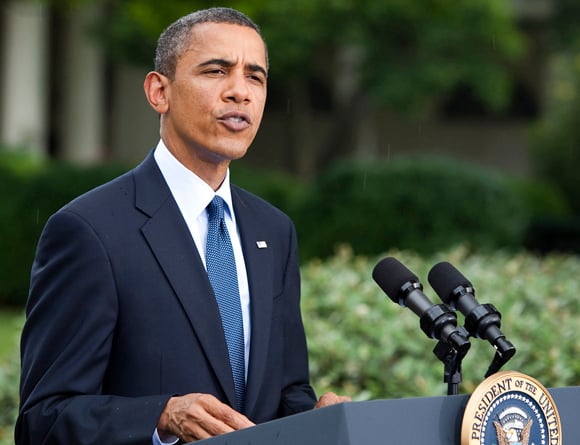Independent financial advisers slam his economic policies; Reagan still the man
The Obama administration gets a failing grade in the latest gauge of financial adviser confidence and sentiment, according to Brinker Capital Inc.
Asked whether President Barack Obama's policies have best served the U.S. and/or global economies, 74% of advisers surveyed responded “neither.” And the same percentage believe that all attempts to avert a recession have failed.
But that response seems to fly in the face of some of another answers the respondents gave. Over half said they believe that the U.S. is, in fact, out of the recession. And when asked if the financial markets will perform better in the second half of Mr. Obama's term than they did in the first two years, 65% of advisers said they thought it would.
The latest quarterly Brinker Barometer, which was conducted in March, compiles the feedback of more than 300 independent financial advisers.
“I think [the results] represent a pretty damning indictment of what Obama's policies seem to represent,” said John Coyne, president of Brinker, which has $11 billion under management.
“Financial advisers were generally optimistic about the near-term, yet the administration came under fire, this time for falling short on solutions to restore the U.S. economy,” he added. “On the heels of two historically strong years for the financial markets, the bar has been set high for 2011 at a time when the U.S. is still searching for answers that will lift us from the recession.”
When asked to identify what is most responsible for the slow pace of economic growth, 98% of respondents listed unemployment, followed by the Obama administration (63%) and government over-regulation (56%).
In terms of regulation, respondents were uniformly critical of the impact of the Dodd-Frank bill on the U.S. economy, with 65% saying they don't believe the bill's reform will be meaningful.
Mr. Coyne said the regulatory-related feedback was somewhat surprising because much of the Dodd-Frank legislation has not yet been enacted.
Expanding on the theme of presidential leadership, advisers were asked to name which U.S. president in the past 40 years they believe has been most successful at helping to build the economy and the country's international standing.
The top choice by 78% of respondents was Ronald Reagan, followed by Bill Clinton, with 18% of the vote.
George H.W. Bush came in third with 2%.
Mr. Coyne drew a connection between advisers' high praise of Mr. Reagan and their inclination to believe that a Republican-dominated House and Senate ultimately will be better for the financial markets, which was cited by 75% of respondents.
“Like most financial advisers, Reagan was an optimistic conservative,” Mr. Coyne said. “By contrast, Obama's rhetoric, tax policies and spending policies are in direct conflict with most advisers' clients, which are high-net-worth investors.”







